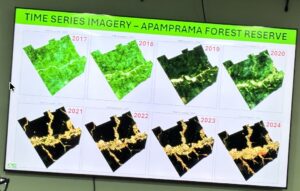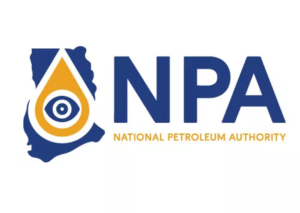
Ammishaddai Owusu-Amoah, the Acting Commissioner-General of the GRA
In a concerted effort to streamline taxation policies and bolster compliance, the Ghana Banking Association (GBA) and the Ghana Revenue Authority (GRA) have reached an agreement to levy taxes on non-residents operating within Ghana.
The decision was formalized during a crucial meeting held in Accra, presided over by Veronica Ainooson, the Executive Secretary of the GBA, and attended by eminent officials including Ammishaddai Owusu-Amoah, the Acting Commissioner-General of the GRA. The focal point of the discussions revolved around the taxation framework applicable to non-residents.
The meeting aimed to address concerns surrounding the timely remittance of taxes by foreign entities conducting business activities within Ghana’s borders. Both entities emphasized the imperative of adhering to tax regulations to uphold transparency and accountability within the financial landscape.
After thorough deliberations, the GBA reaffirmed its commitment to ensuring that non-residents promptly fulfill their tax obligations. Acknowledging the necessity for clarity amidst prevailing misconceptions, the following key agreements were reached:
1. Effective Commencement Date of Taxation: Foreign entities were directed to commence charging taxes on non-residential activities immediately, with a specified effective date.
2. Resolution of Pending Matters: All unresolved issues pertaining to non-residential taxation were conclusively addressed as of the meeting date, providing closure and clarity on previous discrepancies.
Ammishaddai Owusu-Amoah, the Acting Commissioner-General of the GRA, reiterated the authority’s unwavering commitment to implementing the agreed-upon measures. The Deputy Commissioner of the Large Taxpayer Office (LTO) was entrusted with ensuring the expeditious implementation of these measures, thereby fostering compliance and efficacy in tax collection processes.
Both the GBA and GRA expressed optimism regarding the maintenance of a collaborative and constructive relationship going forward. They underscored the significance of sustained dialogue and cooperation in effectively tackling taxation challenges.
The resolution of these taxation issues represents a pivotal stride towards promoting fiscal responsibility and regulatory transparency within Ghana’s financial sphere. With a shared commitment to upholding integrity, fairness, and service excellence, both entities aspire to fortify tax compliance frameworks and catalyze sustainable economic growth.






